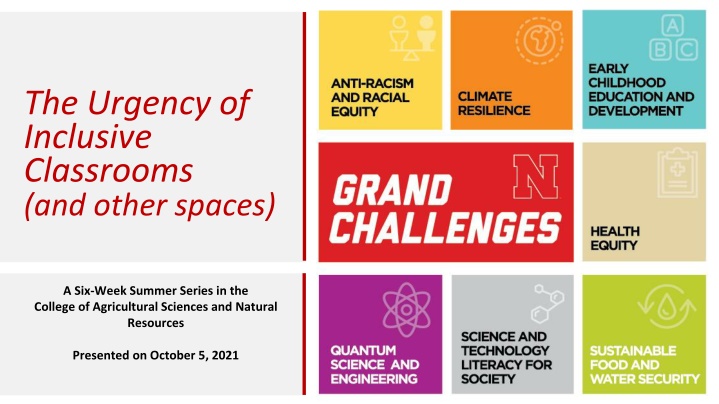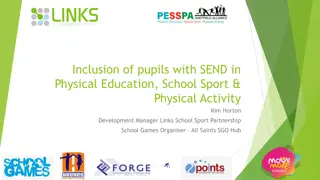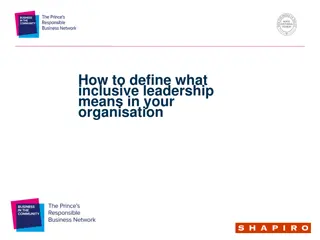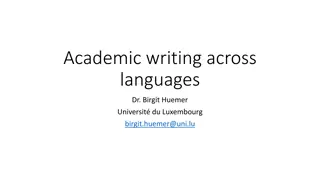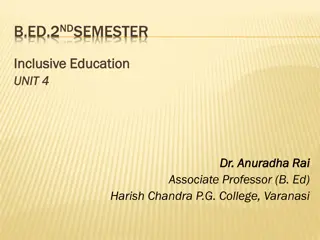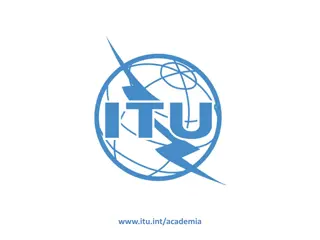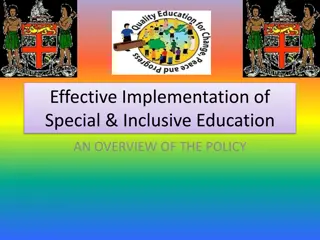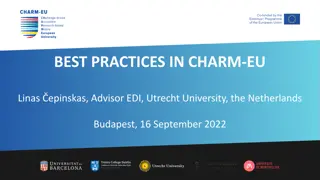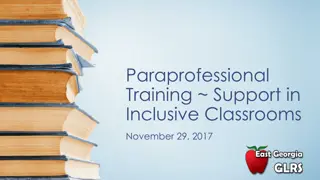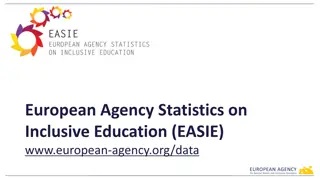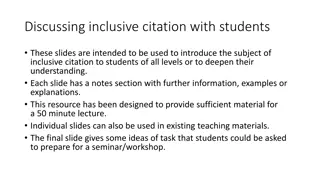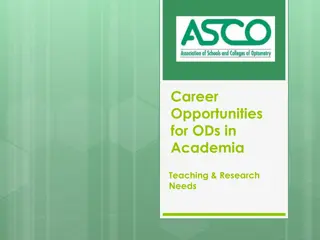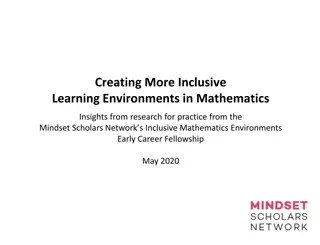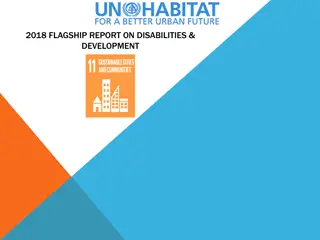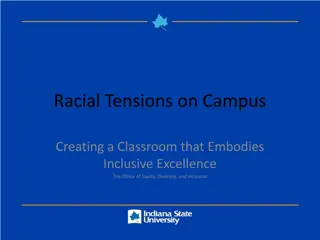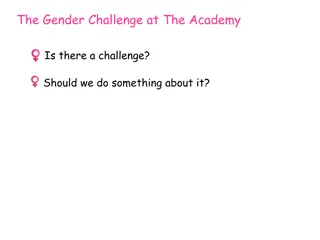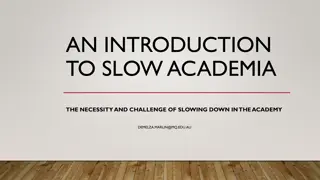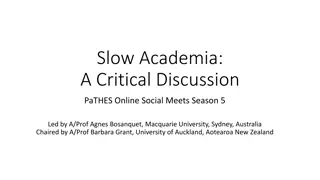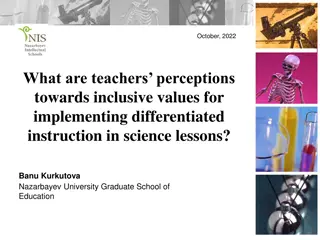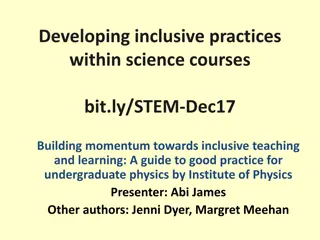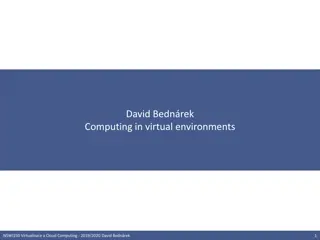Promoting Inclusive Environments in Academia
This project led by Dr. Helen Fagan aimed at fostering inclusive classrooms and spaces within the College of Agricultural Sciences and Natural Resources. Through a collaborative effort, a successful 6-week summer series was conducted, engaging participants in discussions and providing tools to enhance inclusivity. The impact of the sessions on faculty, staff, and students was significant, with plans for future initiatives and continuous support in creating a more inclusive environment.
Download Presentation

Please find below an Image/Link to download the presentation.
The content on the website is provided AS IS for your information and personal use only. It may not be sold, licensed, or shared on other websites without obtaining consent from the author.If you encounter any issues during the download, it is possible that the publisher has removed the file from their server.
You are allowed to download the files provided on this website for personal or commercial use, subject to the condition that they are used lawfully. All files are the property of their respective owners.
The content on the website is provided AS IS for your information and personal use only. It may not be sold, licensed, or shared on other websites without obtaining consent from the author.
E N D
Presentation Transcript
Click to edit Master title style The Urgency of Inclusive Classrooms (and other spaces) Edit Master text styles A Six-Week Summer Series in the College of Agricultural Sciences and Natural Resources Presented on October 5, 2021
Our Purpose We believe human beings are most productive, creative, and engaged when the environment is inclusive. This is exceptionally important in academia to support student success. We are passionate and motivated about building inclusive spaces that cultivate and value both belongingness and uniqueness (see Shore, 2011).
How this Project Connects While not specifically focused on Anti-Racism and Racial Equity, this project helped create an environment that has the potential impact of moving people from believers to builders (see Chugh, 2018) by helping remove barriers, providing tools and information, and creating community (and synergy). We believe these are important elements in Anti-Racism and Racial Equity work.
The Project - Origins Fall 2020, Dr. Helen Fagan and I led a CASNR Community of Practice on Difficult Conversations Attendees were a steady group of 10 20 dedicated and concerned people with a resounding and common message We NEED Help!!! We NEED Help!!!
The Project - Collaboration Works! The Merger: A group of participants approached us to discuss working with their faculty to have conversations about inclusive spaces. We merged our efforts and re-branded to a CoP on Inclusive Conversations. Summer Series: This resulted in the development of a 6-week summer discussion series in Summer 2021 called The Urgency of Inclusive Classrooms. Weekly participation averaged 40+ participants which included faculty, staff, administrators, and students (representing CASNR and beyond). Commitment: included attending weekly discussions*, completing pre- and post- reflection questions, and participating in Google Jamboard sessions to capture thoughts, ideas, tools, needs, and potential solutions. * Our goal was to create a safe space to allow participants to ask questions, engage in discussions, and share successes as well as challenges we could all learn from. We did NOT record sessions!
The Project - Impacts and Next Steps Impacts: Participants dedicated hundreds of hours to their growth and development over the summer sessions They reported that these sessions impacted dozens of faculty/staff and potentially hundreds of students by providing tools and strategies that could immediately be put to use in classrooms and conversations What s Next?: Follow up with participants Continue with another conversation series in the near future Create a Digital Badge for participants Examine reflections and Jamboard data to help guide future work Create an accountability structure for DEI work in partnership with the CASNR Dean s Office and CASNR Faculty Advisory Council
Collaboration and Connections to Other Grand Challenge Areas Collaboration: This work benefited greatly from a cross disciplinary approach. Our small team spanned three departments in CASNR, and the project reached beyond - even across - colleges in its implementation. Connections to Other GC Areas: This project has the potential to add value to any of the Grand Challenge areas where it is important to hear and value multiple voices and perspectives in other words, any that need to be intentional about creating inclusive environments on their teams and in their work.
The Team (so far) Agronomy & Horticulture Andrea Basche, abasche2@unl.edu Christian Elowsky, celowsky@unl.edu Leah Sandall, lsandall5@unl.edu Agricultural Economics Kate Brooks, kbrooks4@unl.edu Agricultural Leadership, Education, & Communication Helen Fagan, helen.fagan@unl.edu Gina Matkin, gmatkin1@unl.edu
Click to edit Master title style Edit Master text styles
